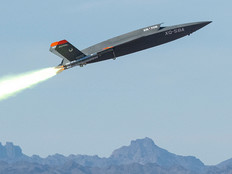How the $20 Million Proto-OKN Funding Opportunity Works
The agencies supporting NSF include NASA, the National Institutes of Health, the National Institute of Justice, the National Oceanic and Atmospheric Administration and the U.S. Geological Survey. They all work with awardees to ensure Proto-OKN supports their data strategies and desired use cases.
NSF expects Proto-OKN will benefit these agencies as well as businesses, nonprofits and researchers in need of integrated information for developing AI capabilities or making policy decisions.
Proto-OKN translational research projects fall into three categories:
- Use Cases: Projects will develop knowledge graphs, or “nodes,” serving as sustainable, data-centric solutions to equity, social care, justice, climate change, disaster management, health communications, supply chain and financial risk analysis challenges. Between eight and 10 three-year awards of up to $1.5 million will be made in this category.
- Fabric: Projects will deploy technologies linking nodes developed by teams in the first category. One or two two-year awards of up to $1.5 million will be made in this category, with the potential for a two-year renewal of up to $2 million.
- Education and Public Engagement: A single $1.5 million award will go to fund the creation of educational materials and tools that enable people and organizations to use Proto-OKN.
NSF intends for the Proto-OKN program to kick off in October. Key program milestones will occur in Q4 of fiscal 2024, when alpha versions of prototypes with be demonstrated; Q4 of fiscal 2025, when beta versions will be shown; and Q2 of fiscal 2026, when the completed Proto-OKN will be deployed, according to a timeline obtained by FedTech magazine.
EXAMINE: How end-to-end artificial Intelligence supports federal mission sets.
Open Knowledge Networks: Then and Now
NSF previously invested in the development of open knowledge networks through its Convergence Accelerator Portfolio and yearlong Open Knowledge Network Sprint held in conjunction with the White House Office of Science and Technology Policy in 2022. The latter saw nearly 150 experts and end users from across the public and private sectors, academia and nonprofits produce a roadmap for the funding opportunity.
The foundation’s new Directorate for Technology, Innovation and Partnerships is involved in Proto-OKN due to its emphasis on advancing data and AI to address pressing societal and economic challenges.
Organizations applying for funding may be listed on multiple proposals but can only serve as the project lead on one submission. NSF will host four informational meetings in April and May in the lead-up to the proposal due date of June 20.






.png)



